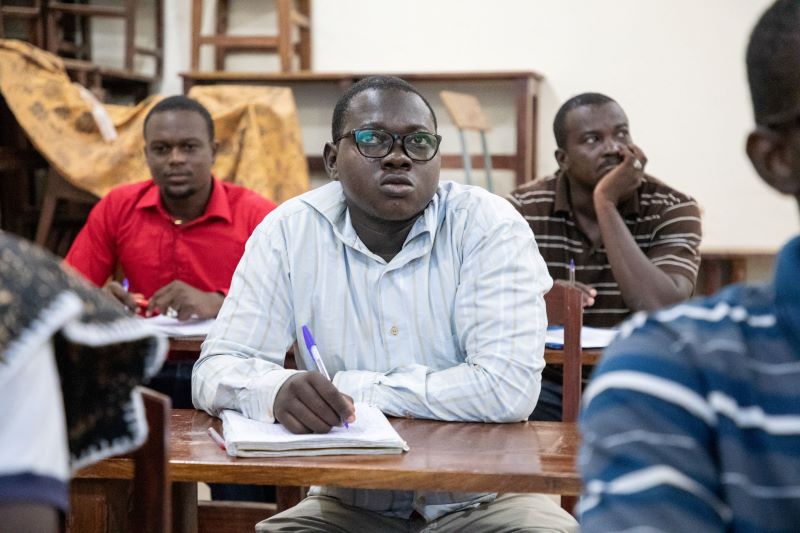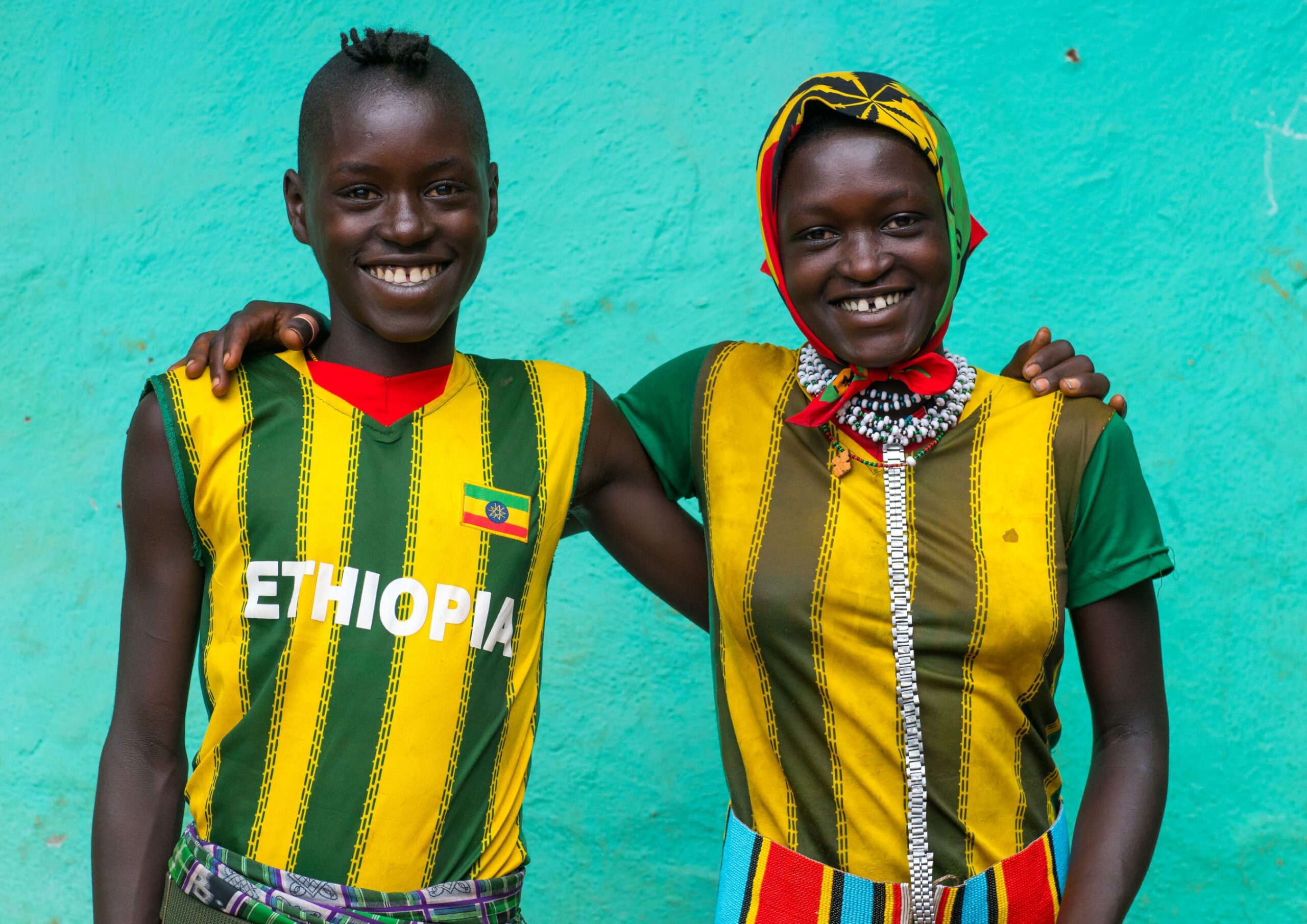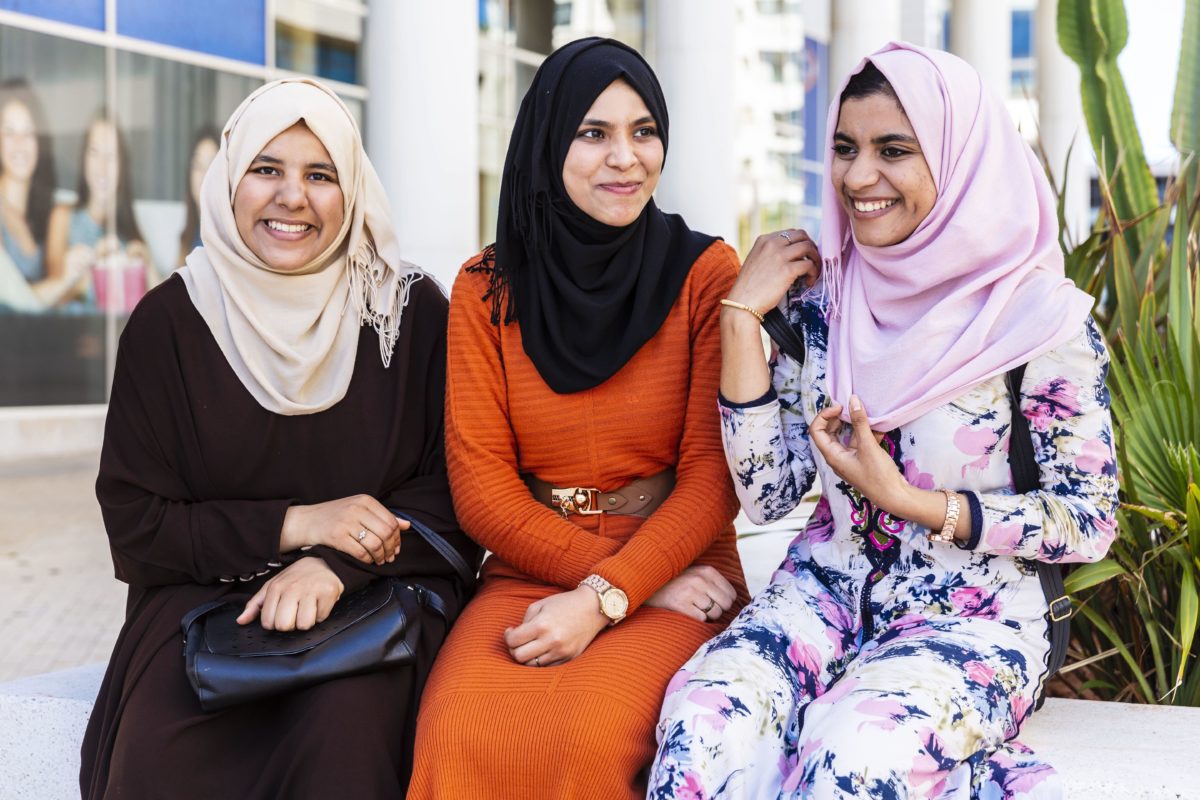How can we support youth to create positive changes for conflict prevention and peacebuilding in their communities?
Whether it’s education advocate Malala Yousafzai, climate activist Greta Thunberg, or Opal Tometi, co-founder of the Black Lives Matter movement, youth voices are at the very forefront of social change. Youth bring energy, ingenuity, and an eye for inclusive, sustainable solutions to today’s problems.
Dexis spoke with three youth leaders on our programs that led positive changes for conflict prevention and peacebuilding in their communities. We asked them about what conditions made it easier for them to assume these positive youth roles.
Eva María Lopez, age 27, El Salvador
According to Eva María López, a human rights lawyer, youth refuse to accept the status quo.
“We are no longer willing to justify that because something that is ‘common’ or ‘normal’ means that it’s good or right,” she said, noting the prevalence of hate speech as an example.
She mentioned recently hearing an Islamophobic comment aimed at the President of El Salvador. Youth activists used the opportunity to push back against hate speech and educate others, saying, “We can criticize the way he’s doing his thing…but not his religion and not the way he looks.”
Youth bring this same innovative lens to open a variety of civic spaces. She noted how young people in El Salvador employ “artivism,” combining an examination of moral values—like respect and integrity—with art to engage communities.
Eva discussed how youth build new structures to assume leadership roles, “They’re no longer waiting for another organization from, say, 30 years ago to accept them. They are willing to create their own spaces.”
She gave examples of young leaders, who supported by USAID’s Justice Sector Strengthening Activity (JSSA), went on to create five new organizations to promote transparency, democracy, and youth engagement.
Eva stressed how young people naturally take the long view when looking for solutions, “Allowing youth to be a part of the solution and peacebuilding, it’s a guarantee that the process can keep going.”
Anja Sucevic, age 18, Serbia
Youth engagement is vital, not only to create spaces for change but to also mobilize communities and young people in decision making on what resources are needed most in their communities.
“Learning comes through participation,” said Anja Sucevic, a high school student in Serbia. “It is important that young people are able to share their opinions, objections, and proposals and are involved in decision-making so that they can see, hear, and learn about this process.”
Anja discussed the value of working through formal structures for community building with youth, “I believe that school is an essential link that should change this whole process for the better.”
For example, through USAID’s Government Accountability Initiative (GAI), the local government engaged the public, including high school-aged youth, in development of the Sombor city budget for 2020. More than 2,700 students from 5 high schools participated in the decision-making process.
“It was helpful for us to feel that we are actually the ones who could really do and change something,” said Anja.
Students deliberated and voted on which project would be financed through the city budget. Anja and her fellow students chose refurbishing space in their school’s basement to serve as a youth club for after-school activities.
“Our opinion was finally taken into consideration,” she said. “We are setting priorities and expressing what we need most.”
Alhousseiny Moussa, age 30, Mali
A paralegal based in northeastern Mali, Alhousseiny Moussa discussed two key aspects of youth participation in his country. As youth constitute the majority of Mali’s population, youth inclusion is a matter of representation. Further, empowering youth promotes civic engagement and combats the disenfranchisement that contributes to radicalization.
“Involving youth in conflict prevention and peacebuilding can be both a defense against radicalization and a mechanism for stronger and more sustainable conflict mitigation and avoidance,” said Alhousseiny.
He noted the increase in education and job training programs as an attempt to reduce one of the root causes of youth marginalization. In addition, initiatives that include youth in the actual processes of conflict prevention, peacebuilding, and dispute resolution have started to receive attention.
“Civil society and the Malian government have focused on the need for young people to have a seat at the table for the discussions and decision-making that seek to resolve inter-community conflicts and promote sustainable peace. As such, youth organizations have proliferated in Mali and many of those are becoming increasingly relevant in the peace process,” Alhousseiny said.
He stressed the importance of programs that directly target the talents and dynamism of youth, such as USAID’s Mali Justice Project (MJP), which provides Alhousseiny and other young professionals with skills in applying Malian law and protecting community interests.
“We acquired practical knowledge in various aspects of Malian laws, drafting legal and administrative documents, legal awareness techniques, strategic litigation, advocacy, and conflict mediation. These capacity building initiatives empowered us to use the law to defend our legal interests and those of our communities, prevent and resolve individual and community-level conflicts, and more generally, reduce the sense of marginalization that we youth often feel,” he said.
Despite sweeping differences in country and regional contexts, what came across loud and clear from each of these young leaders was their enthusiasm, inventiveness, and dedication towards creating real, lasting change. They emphasized the need for programs to move beyond token representation of young people and truly involve youth in meaningful ways. Authentic engagement of youth as partners in any effort empowers new voices to enable more inclusive and resilient conflict prevention, peacebuilding, and good governance processes and lasting change.
Megan Smith is a former Project Associate now Communications Specialist with Dexis, embedded within the Local, Faith, and Transformative Partnerships Hub in the USAID Bureau for Development, Democracy, and Innovation.
Photo by Eliano Imperato / Controluce / Controluce via AFP





